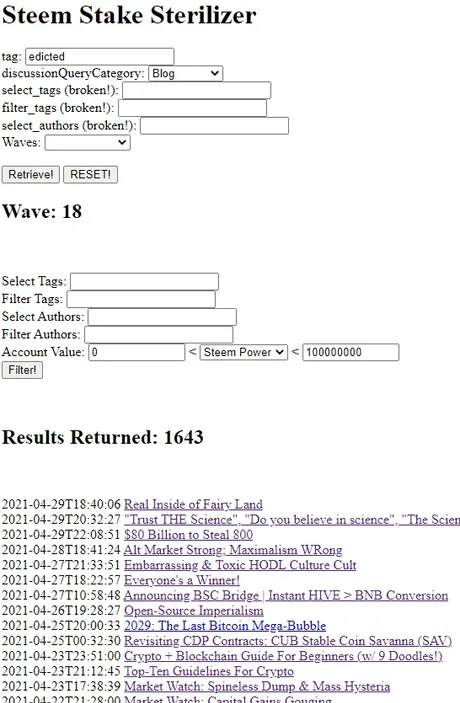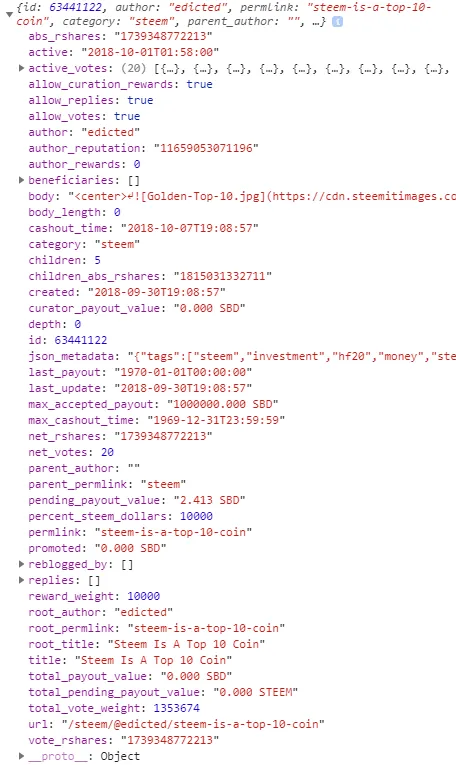
The Rules of Web 2.0 are very clear:
If you want a lot of users you have to give away the product for free and then monetize it in another way. More often than not this "other way" is simply ads and other methods of datamining huge swaths of information for a profit. Every year corporations get more and more information on everyone, and they use that data to mine value in any way they can. This has led to some serious data-breaches over the years due to all the information being stored in centralized locations, leaving them vulnerable to attack.
The Rules of Web 3.0 are quite unclear:
We keep trying to project what we know about the legacy economy onto the crypto economy. Sometimes it works, but most of the time it doesn't. We have to completely change our thought patterns if we want to make it here. In this case we have to pay for things that we would otherwise get for free. Not to worry, paying for resources has never been this fun.
Fun?
How could paying for something that we'd otherwise expect to get for free be fun? Sounds like a ripoff! And it would be if we didn't get a return, but we do. Even though we have to pay for things like bandwidth and other low-level resources we can then convert those raw resources into a product with exponentially more value (usually NFT adjacent). In this context even a blog post is an NFT.
For example, take this blog post that I'm writing now in real time. When I finish the post I have to pay to have it recorded on the blockchain. You might be thinking, "But Resource Credits are free..." and that would be 100% false. There is simply so little competition to use Hive at the moment that they are heavily abundant and we round the value down to zero in our minds. These days won't last forever.

If anyone wonders how I'm able to link back to posts that I wrote years ago: this is it. This is a script I wrote years ago and it magically still works. The idea was the build a new frontend that could sort data based on more information than just upvote value. Yeah, I never got around to doing that. Maybe one day.
The point is this information is just being stored in RAM on my internet browser. If I close the tab, I lose all the information. If I close the browser, I lose all the information. If I reset my computer, I lose all the information. Sometimes when I put the computer to sleep it lose it as well.
So what do I do when I lose it all?
Simple! I just connect to @anyx's full-node witness and run the script all over again. Considering I'm up to 1643 posts plus my reblogs, this is becoming expensive: in both time it takes to run the script and also bandwidth considerations.
Of course it doesn't cost me anything, because I live in Web 2.0 world where my ISP gives me pretty much unlimited bandwidth. It's @anyx that has to pay the price for my laziness and inefficiency. I've probably run this script over 100 times, and every time I do @anyx isn't sending me just the titles and links of the post (what the script shows)... he gives me all the information of the entire Discussion. I'm taking every word... you know what I actually forgot how much there is in a discussion: check it out.

Appologies for "Steem is a top 10 Coin"... LOL!
Wow... look at how much information that is... not only does a Discussion contain the entire body of the post, it also seems to include every single account that voted on the post as well, in addition to dozens of other variables.
The point is @anyx is paying the bill here, and he shouldn't have to. First of all, I should have done more work on my database and been storing this information myself rather than constantly pinging his server. That's on me.
The future of Web 3.0
The way I see it servers like @anyx will have proper logins and passwords. So imagine I can connect to his full-node with @edicted's credentials (signed transaction with the posting key). This would then allow @anyx to monitor how much bandwidth I use and how much everyone else uses, and if anyone starts using too much they get cut off or they have to pay money for "points". Of course these points would be a centralized cryptocurrency only available on the @anyx server. Also most accounts would be allowed to run into the negative. We only have to charge users who consume a lot.
So anytime anyone gave @anyx money his full node would automatically credit them points on his own centralized system. Using bandwidth on his full node would very slowly drain points over time. This is a micro-charging money stream, which I believe will be the future of all of this going forward. We won't be allowed to get these things for free once we begin to scale up.
It works because it's not exploitative.
In Web2 corporations give us the service for free but then they own us and everything we do. In Web3 we don't get anything for free but we can leverage the cost of doing business into much bigger profits. I'm writing this post and it's going to cost me RCs. I'm going to turn those RCs into exponentially greater value than their cost. That's how things are going to work moving forward. We'll have to pay our own way but the journey actually has more value than the cost of the ticket.
Posted Using LeoFinance Beta
Return from Micro-Charges: The Future is Paying for Bandwidth. to edicted's Web3 Blog
